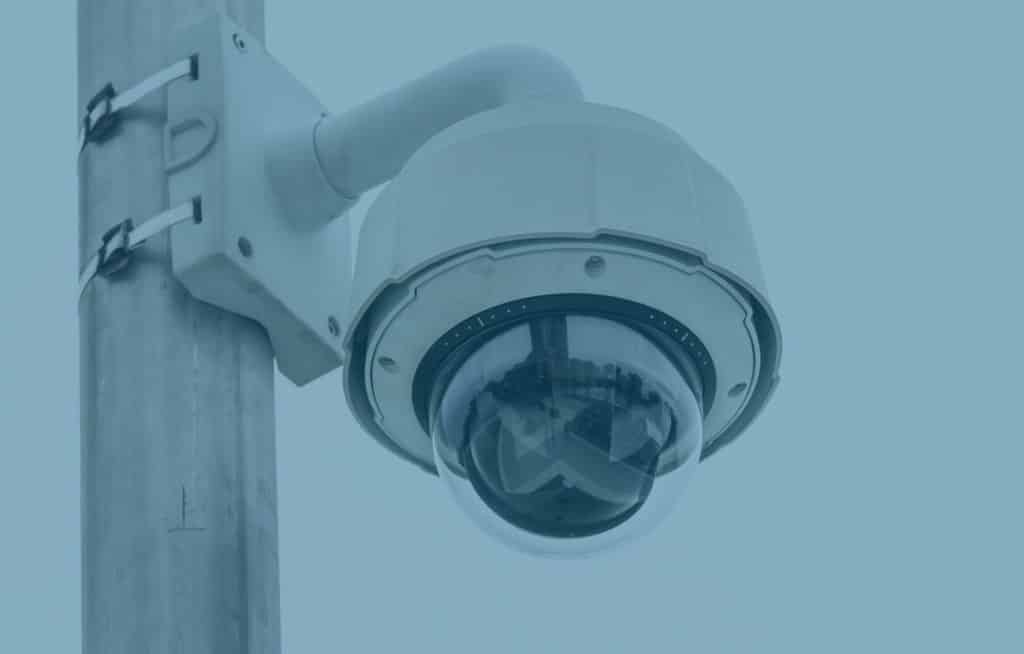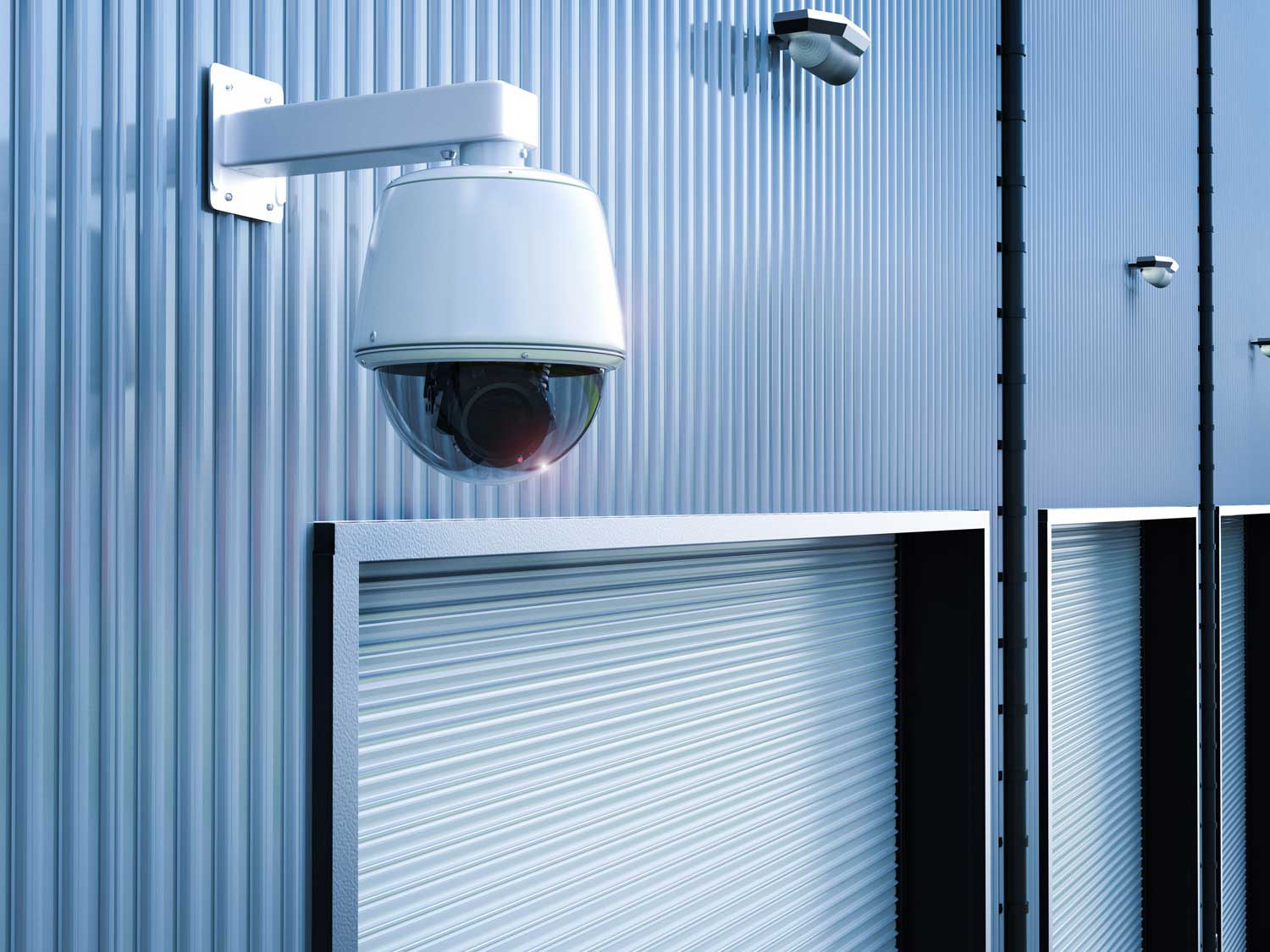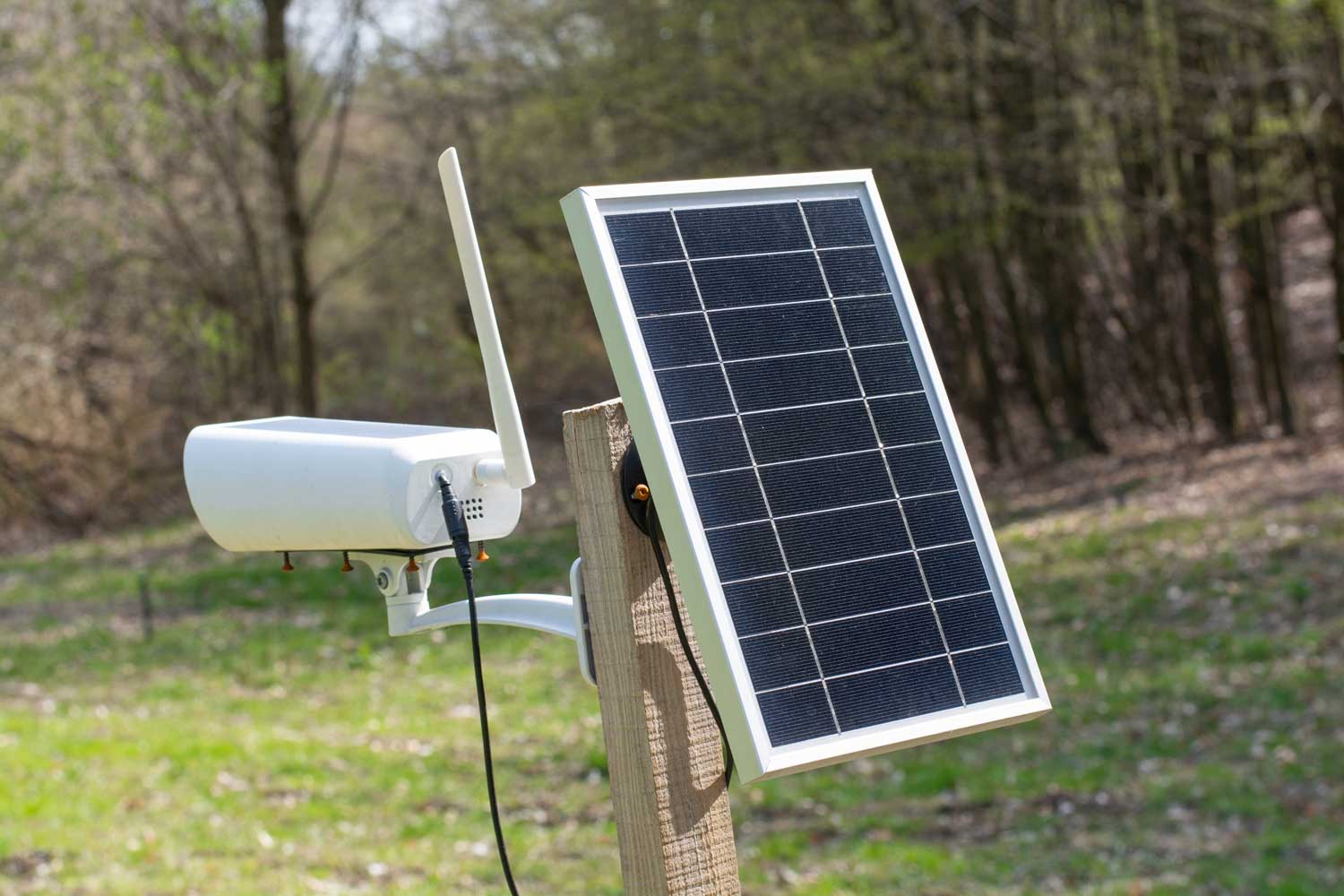Quick Answer:
Battery-powered security cameras typically last three months to a year per charge, depending on motion activity, video quality, and environmental conditions. You can extend battery life with motion-activated recording, health monitoring services, and even solar panel add-ons for continuous power in remote locations. For businesses, pairing battery-operated cameras with professional monitoring ensures 24/7 protection and reduces downtime from dead batteries.
Want to learn more? Read on!
Wireless cameras have some obvious advantages. One of the biggest is they’re less expensive to install. Especially when you need to stretch wire over a long distance.
These cameras are powered by a battery. But how long do these battery-operated surveillance cameras last? You certainly don’t want your cameras to shut down unexpectedly due to running out of power. This could leave your business vulnerable to criminal mischief.
Are there any power-saving measures that will help the batteries last longer? We have some pro tips to help you maximize the life of your battery-operated surveillance cameras.
The Basics of Battery Operated Security Cameras
The rise of battery operated security cameras has transformed modern business and home security. Whether you’re using a battery powered wireless security camera for your office, a battery operated outdoor surveillance camera for your property perimeter, or a battery operated Wi-Fi camera at an off-grid location, these devices offer unmatched flexibility and convenience. With no need for hardwired power, you can easily mount these “surveillance camera with battery” setups wherever you need coverage most, even in remote corners or outdoor environments where outlets simply don’t exist.
Why Would You Choose a Battery-Powered Camera Over a Wired Unit?
The answer to this question is simple: cost and convenience. Battery-operated surveillance cameras allow for flexible placement. You can literally place these cameras anywhere. They don’t need access to an electrical outlet. There are no cables to run. You simply recharge them when the battery is low, similar to a home security system. With that said, commercial batteries are much more powerful than a home unit.
How Long Does the Battery on a Business Security Camera Last?
The answer depends on usage. Some battery-operated surveillance cameras can last months or even years. Generally, these cameras are powered by lithium-ion cells, which become more efficient every year.
But, how long does a camera battery last in practical terms? For most outdoor camera battery operated models, you can expect between three months and up to a year of use per charge, depending on factors like camera resolution, the frequency of motion-triggered events, temperature, and whether the camera is recording continuously or only when triggered. Some battery operated wireless security camera systems even allow for quick-swap battery packs to minimize downtime. For a high-traffic area, battery life will be shorter, but with proper configuration, modern units are designed to maximize efficiency.
Over time, however, even the best battery-powered surveillance camera can die out. That’s why we highly recommend a service to monitor the health of your battery-operated surveillance camera.
Supplement Your Battery-Powered Surveillance Camera with Health Monitoring
If you have battery-operated surveillance cameras, it’s important to frequently check these security tools. Monitoring the health of your security cameras is a service that companies like Pro-Vigil offer. The goal is to ensure 100% operation at all times.
Surveillance cameras are designed for prevention. They’re like a fire alarm; you don’t need them until the day you do. When and if that day happens, the last thing you want is to find that the equipment you trusted didn’t function. Battery-powered surveillance cameras or even wired units should be constantly monitored to ensure they are always there when you need them. The last thing you want is to walk into your business and find that your camera battery died over the weekend—right before a break-in occurred.
Factors That Impact Battery Life in Battery Operated Wireless Security Camera Systems
Understanding what affects battery life helps you plan your surveillance strategy. Key factors include:
-
Camera Usage: Motion-activated recording vs. continuous recording has a massive impact on battery drain.
-
Video Quality: Higher resolution and frame rates use more power.
-
Night Vision: Using infrared LEDs for night surveillance consumes additional battery.
-
Environmental Conditions: Extreme cold or heat can reduce battery performance in outdoor wireless security camera battery operated systems.
-
Wi-Fi Connectivity: If a battery operated Wi-Fi camera is in a low-signal area, it will use more power maintaining connection.
Some models, such as battery operated outdoor surveillance cameras designed for rugged environments, are engineered to withstand harsh weather and optimize power consumption, extending longevity.
What Makes Your Battery-Operated Surveillance Cameras Last Longer?
To extend the life of your battery, we recommend motion-activated cameras. These units turn on the recording feature when they detect motion. They can even connect wirelessly through the cell network. As the camera records the activity, it pings your security team’s phone with video footage. Or, if your cameras are monitored by a 24/7 service like Pro-Vigil, we can triage the risk as it happens. Motion activation is a smart way to save the life of your battery. But it’s the extra features that transmit data to the cloud that really help these cameras pay for themselves. Motion detection can:
-
Flag you if there’s a potential intruder.
-
Alert you if trespassers enter restricted areas.
-
Trigger lights and audible alerts to scare off intruders.
This may not always be appropriate though. What if you need the camera to stay on all the time, but the location is inaccessible to a power main? That’s when you should consider a solar-powered camera.
Benefits of Solar Power to Supplement Your Battery-Powered Surveillance Cameras
If you’re worried about how long your battery-powered surveillance camera lasts, add solar power to the unit. Solar security cameras use the power of the sun to keep the video surveillance going. Extra power is stored in the battery to extend the life of the unit. These cameras can function even on a cloudy day.
Allowing nature to power your cameras in places where you don’t have access to electricity is a great workaround. Great security companies, like Pro-Vigil, will install these high-tech systems as part of a full business security architecture. We’ve found them to be highly effective in even the most rural or rugged conditions.
The benefits of adding solar to your battery operated surveillance cameras include:
-
Extending the life of your batteries.
-
Requiring no cabling or power grid to operate.
-
Installation in the most remote locations.
-
Easy installation with no cabling costs.
-
Green and environmentally friendly.
-
24/7 camera monitoring—long after the sun goes down.
-
Scalable and affordable.
-
Monitoring by an external vendor like Pro-Vigil.
Choosing the Best Battery Operated Outdoor Surveillance Cameras for Your Business
The range of options for battery operated wireless security camera system solutions continues to grow. Today’s leading models offer crisp HD or even 4K resolution, infrared night vision, wide-angle lenses, two-way audio, and real-time smartphone alerts. Some outdoor camera battery operated devices also feature tamper detection and weatherproof casings, ensuring continuous performance in challenging environments.
When shopping for a battery powered wireless security camera, consider:
-
Battery life claims vs. real-world reviews
-
Ease of battery replacement or recharging
-
Support for solar panels or backup battery packs
-
Integration with mobile apps or cloud monitoring platforms
-
Professional monitoring services like Pro-Vigil for guaranteed response
Pro Tips for Designing the Perfect Battery-Operated Surveillance Camera Set Up
The first tip we’d like to share is a simple one: When designing the perfect video surveillance set up, ask for help from experts, like the security professionals at Pro-Vigil. The reality is that there are varying conditions on your property. Will you know the right questions to ask to design the proper system, such as:
-
Is a wired or wireless camera more effective?
-
Are cameras powered by batteries reliable enough for my business?
-
Do you need a WiFi signal for the cameras to work?
-
Which cameras should make use of the power grid?
-
Do I need solar to record 24/7 or is a motion detection camera enough?
-
Should all recorded footage go to the cloud or to a DVR?
-
Which type of battery-operated surveillance camera is best for your remote locations?
-
Should you add audio and visual deterrents to your cameras?
-
Do you need night vision or thermal imaging?
-
What smart artificial intelligence features are important to your security architecture?
Battery-Powered Security Camera FAQs
Most battery powered security cameras are rated IP65 or higher, meaning they can withstand rain, snow, and dust. For outdoor wireless security camera battery operated models, always check the manufacturer’s specifications to ensure reliable year-round performance in your climate.
Yes, many modern battery operated Wi-Fi cameras offer built-in microphones and speakers, allowing you to communicate with visitors or warn trespassers right from your smartphone app or monitoring dashboard.
Absolutely. Many surveillance cameras with battery designs now offer optional solar panel attachments, letting you harness the sun to keep your camera running longer with minimal maintenance.
If your camera loses power, it will stop recording, but most battery operated wireless security camera system models store footage in the cloud or on local storage up until the battery is depleted. Always check that the camera automatically uploads footage before powering down for maximum peace of mind.
Manufacturers have made big strides in cybersecurity, but no internet-capable device is 100% immune. To reduce the risk, keep your battery operated security camera firmware updated and use strong, unique passwords for your Wi-Fi and camera accounts.
Most battery operated outdoor surveillance cameras feature removable battery packs for easy swapping, or onboard charging ports for USB or proprietary chargers. Simply follow the manufacturer’s instructions, and consider keeping spare charged batteries on hand for zero downtime.
Not always — some battery operated wireless security camera models can use cellular networks, while others require Wi-Fi for cloud storage, live streaming, or alerts. Check compatibility with your intended installation site before purchasing.
Battery life can vary from a few months to a year or more, depending on usage, settings, and environmental conditions. For heavy-use, high-traffic locations, expect to recharge more often. Regular maintenance and the use of solar panels can help maximize uptime.










